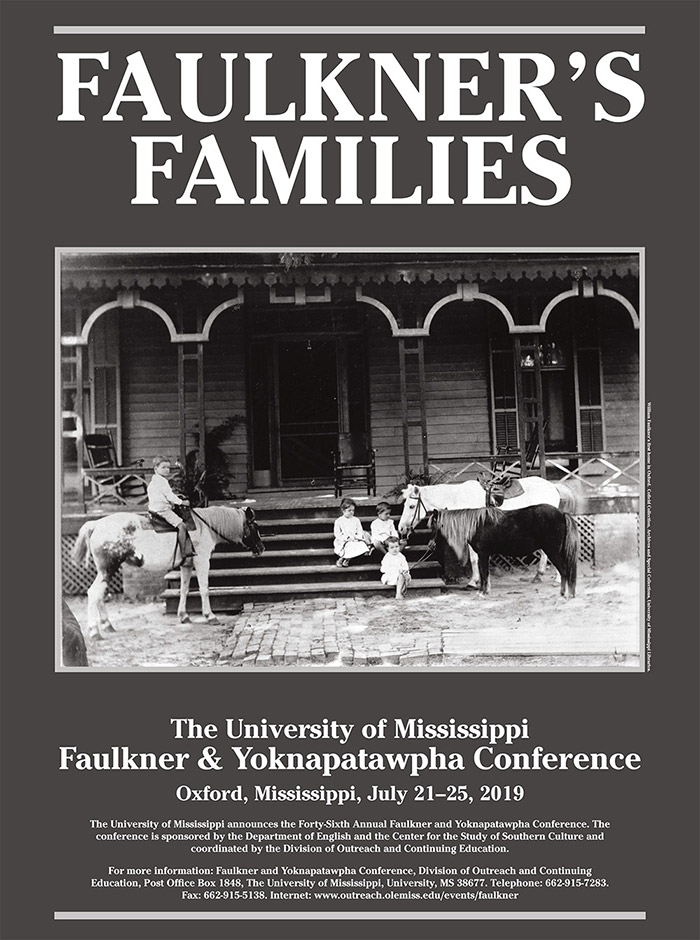
Faulkner’s Age, Age in Faulkner’s Work
Location
Nutt Auditorium
Start Date
22-7-2019 2:00 PM
Description
This talk explores children in Faulkner’s work and life, the importance of the concept of childhood to his literary vision, and the way that age and maturation feature thematically and structurally in his writings. The figure of the child has been integral to American political thought and national identity since the early national period. Over the course of the nineteenth century, the child came to represent nationalism, nation building, and the intrinsic connection between nationalism and race that was instrumental in creating a culture of white supremacy in the United States. Faulkner inherits and complicates this long American literary and political tradition, his writings at once enunciating the power of the child to transform racism in America and simultaneously complicating the idea of progress, be it political or individual. Progressive maturation (already partly a myth) becomes a particularly tangled concept in Faulkner’s writing, his distinctive literary style complicating linear concepts of age and therefore the political progress narratives that have been implicit in them from the nation’s beginnings.
Relational Format
Conference proceeding
Recommended Citation
Levander, Caroline, "Faulkner’s Age, Age in Faulkner’s Work" (2019). Faulkner and Yoknapatawpha Conference. 11.
https://egrove.olemiss.edu/fy/2019/schedule/11
Faulkner’s Age, Age in Faulkner’s Work
Nutt Auditorium
This talk explores children in Faulkner’s work and life, the importance of the concept of childhood to his literary vision, and the way that age and maturation feature thematically and structurally in his writings. The figure of the child has been integral to American political thought and national identity since the early national period. Over the course of the nineteenth century, the child came to represent nationalism, nation building, and the intrinsic connection between nationalism and race that was instrumental in creating a culture of white supremacy in the United States. Faulkner inherits and complicates this long American literary and political tradition, his writings at once enunciating the power of the child to transform racism in America and simultaneously complicating the idea of progress, be it political or individual. Progressive maturation (already partly a myth) becomes a particularly tangled concept in Faulkner’s writing, his distinctive literary style complicating linear concepts of age and therefore the political progress narratives that have been implicit in them from the nation’s beginnings.

